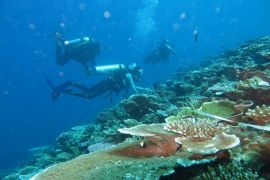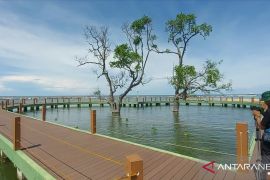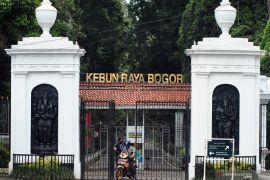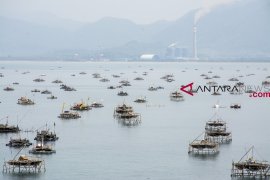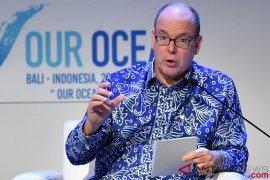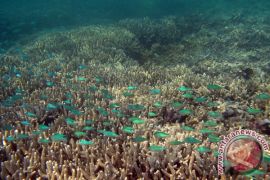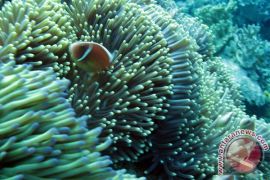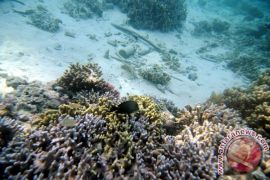The destruction of coral reefs in Indonesia has reached such an alarming level that Kupang Mayor Daniel Adoe has said it would lead to a humanitarian disaster sooner or later.
"Destroying coral reefs is the same as creating humanitarian disasters on the face of the earth," Daniel said in Wakatobi, Southeast Sulawesi, on Tuesday.
He said that along with the destruction of coral reefs, coastal area resources for people`s welfare would sooner or later disappear.
Daniel made the statement on the sidelines of a round table meeting of mayors and district heads from six countries grouped in the Coral Triangle Initiative (CTI) in Wakatobi.
Wakatobi district head Hugua hosted the four-day meeting to discuss environmental issues including food security, global climate change, energy scarcity, and coral reef protection.
At the meeting, Daniel Adoe said coral reefs contain various natural resource potentials for the prosperity of coastal people.
Indonesian coral reefs are also among the most biologically rich in the world with extraordinary plant and animal diversity.
He said the world`s greatest diversity of coral reef fish are found in Indonesia with more than 1,650 species in eastern Indonesia alone.
But the country`s rich supplies of coral and reef fish were endangered by destructive fishing practices, for cyanide and blast fishing were widespread across the country even in protected areas.
Therefore the Kupang district head said that as the policy makers at the local level, the mayors and district heads should be committed to preserving coastal regions with the coral reefs from destruction so as to provide sustainable welfare for the local communities.
"With self-governing system as it is today, the responsibility of preserving the environment, including coastal areas, is in the hands of mayors and district heads as the holders of authority or policies at the local level," Daniel said.
Accordingly, he added that every district head and mayor had to be responsible for saving the environment, especially the coastal areas from the threat of destruction.
Indonesian coral reef fisheries are also in crisis due to destructive over-harvesting by irresponsible fishermen with bombs and poisons.
Consequently, former President Megawati Soekarnoputri at the International Coral Reef Symposium some ten years ago in Bali said that around 94 percent of coral reefs in Indonesia were already damaged.
Therefore, Daniel called on the assembled mayors and district heads to do something about coral reef preservation.
"Whoever does activities that impact on environmental and coral reef degradation, especially in coastal areas, the mayor and district head should have the courage to take the firmest possible action against him or her in an effort to maintain natural preservation," Daniel said.
Similar statement was also made by Wakatobi district head Hugua, who hosted the round table meeting of mayors and district heads from six countries of Coral Triangle Initiative.
Hugua said the mayors and district heads at present should no longer think to dredge the wealth of natural resources for their own interest, but instead to think how they could render something to the nature to maintain natural preservation and environmental balance.
"The mayors and district heads who want to dredge natural resources for the welfare of the people will only create humanitarian disaster for their children and grandchildren," Hugua said.
Referring to the rule of "sowing and reaping," Hugua said the nature has taught us that if we gave something to the nature, the nature would return it in abidance.
"The smallest example is that if we sow a single seed of corn, the nature will return to us more than a handful of corns. That is the generosity of nature for us, but we often times ignore the natural preservation," Hugua said.
Therefore he said it was time for the people to give something to the nature for natural sustainability and balance instead of taking something away from it which led to natural destruction.
"In principle when we take a tree from nature, we have to plant more than one to the nature for such a behavior will bring prosperity in a sustainable society," Hugua said at the round table meeting of mayors and district heads from six countries of Coral Triangle Initiative (CTI).
The Coral Triangle covers the exclusive economic zones of six countries: Indonesia, Timor Leste, the Philippines, Malaysia, Papua New Guinea, and the Solomon Islands.
It is the epicenter of marine life abundance and diversity on the planet with its biological resources sustain the lives of over 120 million people.(*)
O001/HAJM
Reporter: Otniel Tamindael
Editor: Jafar M Sidik
Copyright © ANTARA 2011
